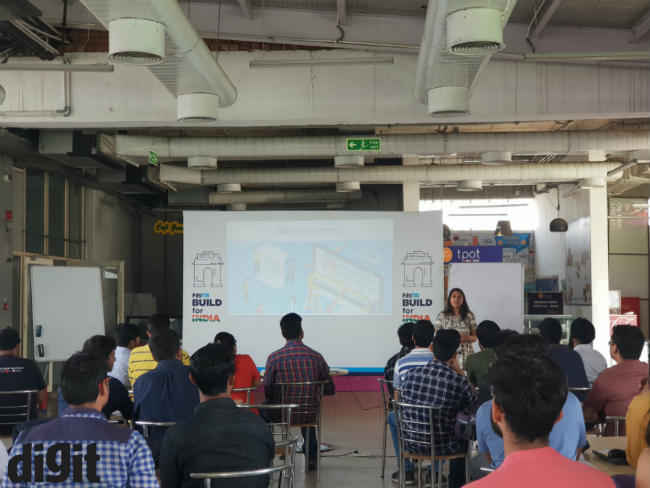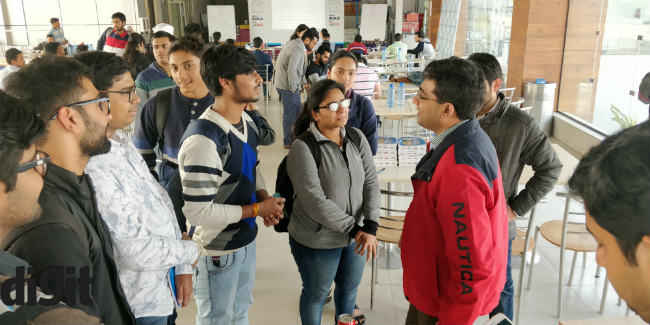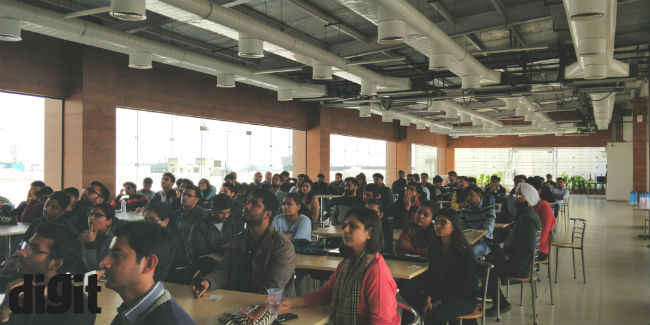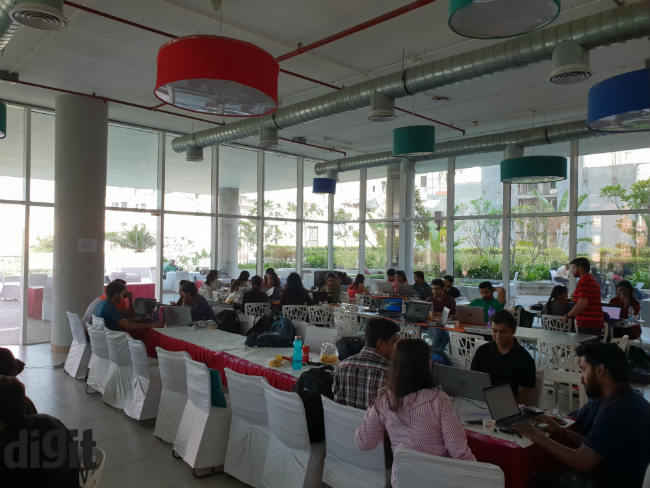Paytm’s ‘Build For India’ initiative wants India to think like Silicon Valley
Through an open-source incubator, regular hackathons and contests, Saurabh Jain and his team at Paytm is trying to forge a culture of knowledge-sharing and productive thinking in the country.
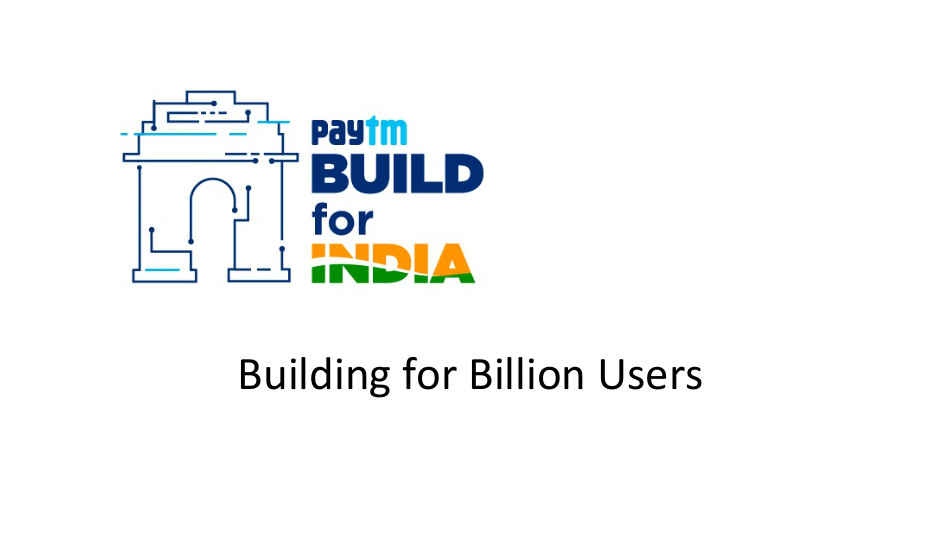
Steve Wozniak, or Woz, the brains behind the world’s first personal computer said during a recent visit to India that Indians lack creativity. “Study, work hard, get an MBA and you will have a Mercedes, but where is the creativity?” Woz was right in his observation, but not entirely. While there is indeed a tradition of rote-learning in the country, there is an ongoing attempt to change the system. The startup ecosystem, for instance, is one such example in the country where even a decade back, hordes of students would get into Engineering colleges to follow a set-path to ‘success’. While the giant corporates would swoop in and hire a bunch of students, only to make them do the same routine work year after year, a small group of students stayed away to do their own thing. The results are the Flipkarts, Paytms and Olas of India that have taken the global competition head on.
 Survey
SurveyThese startups not only want to succeed, but also want to give back to the society. Ola regularly ties up with government bodies to tackle pollution, while Flipkart empowers small-scale entrepreneurs to achieve success on their own. Paytm, too helped ease the process of demonetisation by expanding its platform to facilitate digital payments.
There’s something more Paytm is doing though. Through an initiative named ‘Build For India’, the popular payments app and now a bank in itself is trying to introduce a Silicon Valley-like culture in the country where students and professionals can openly share knowledge and dabble in productive applications to further increase their knowledge.
What is Build For India?
Paytm’s Build For India is an open source incubator to promote open source projects in the country. Through the initiative, Paytm wants to provide a bridge between the youth, industry, government and institutions. It is also Paytm’s way of addressing the existing democratic dividend where majority of the workforce will be youngsters, by helping the youth to channelise the energy to solve the country’s problems.
With support from more than 80 mentors within the startup ecosystem, the initiative aims to promote an open source ecosystem of software, hardware, content and education. By allowing individuals to learn from each other, it is also a way to educate the youth and get them ready for the job market.
The initiative, headed by Saurabh Jain, Head, Paytm-Build For India, is now in its second month. It works through conducting meetups, hackathons and contests from time to time. I happened to attend two of these meetups and was taken aback by the buzzing energy of the place. Hundreds of youngsters from schools, colleges and even professionals interacting with mentors and experts to advance their projects. Yes, each individual attending the meetup has an idea in their mind which they want to turn into reality and Paytm’s team of mentors will be guiding them.
A Build For India meetup at full swing
Saurabh, who had his own startup before joining Paytm realised the learning happened much faster. Things he couldn’t learn in school and college, was easily absorbed while working to make his startup successful and that is the model Jain chose to prepare the youngsters for the job market.
In a Medium post, he wrote, “The youths face the problem of employability. Industry does not provide relevant projects to youth during the college and school days but expects the youth to be employable from day one. Industry sometimes does provide class room training to new recruits but there is paucity of cutting edge projects for college and school students in general.”
That is fundamentally the problem Paytm wants to solve through the Build for India initiative.
An open source incubator
There’s incentive for the creators as well. Once their projects reach a commercially viable stage, Paytm will work to connect the project team with people and organisations that can fund them — Angel Investors, Venture Capitalists and the likes.
Saurabh engaging with the students
Working as an open source incubator, the initiative lists down the steps to start the open source, the areas which the project can explore, the tools to use — all the way to becoming a full-fledged startup. In the final stage which Saurabh calls “The Problem Solution Fit”, the teams will get support to publicise, high-level interactions with the Paytm senior team, priority access to internships and job interviews at Paytm and Rs 25,000 Paytm money as seed fund.
Once the project is formulated into a formal startup, Paytm will provide opportunities to network with angel investors, VCs and a six month-long support from the ‘Build For India’ team to secure funding and scaling up.
“Promote a Silicon Valley Culture in India”
“India has that culture of slacking. An engineer doesn’t want to design. A designer will not code. We want to change this thought process. I did some research and as part of it, I started one of India’s first maker-space for kids. Through that I realised that the problem starts at home. Marksheets and degrees dominate a student’s life, but in reality they hardly matter. Industries want people who can think creatively, come up with something original,” Saurabh said.
To change that thinking, Saurabh thinks India should follow Bay Area’s steps. In the valley that houses Apple, Google and Facebook that influence the world over, fortunes are made by nerds who think orginally and creatively without the pressure of a marksheet. That is fundamentally the culture Saurabh wants the youth to immerse in.
But Silicon Valley did not turn into a creative powerhouse overnight. There was a conscious encouragement towards leveraging technology to solve problems. A fair instance of it would be the historic “Homebrew Computer Club”, a hobbyist group for computer nerds to meet up and discuss. A lot many successful engineers, inventors and prodigal personalities came from its ranks, including the founders of Apple. Similar knowledge sharing forums were there across the valley which gathered enough momentum to result in the giant tech companies that are now all around us.
The ‘Build For India’ initiative also emulates the same model. Through engaging meetups, hackathons and mentorship, Saurabh and his team are planting the seeds of innovation. In a typical meetup, I saw hundreds of enthusiastic individuals, each with their own unique projects logging heads to push the boundaries. And Paytm is only happy to help. Senior executives of the company, including the founder Vijay Shekhar Sharma routinely engage and interact with the participants, take questions and give advice.
While it’s still early days for the initiative to bear fruit, there’s already a couple of projects that have been getting some attention. A blockchain-based car data system that has a grand vision of incorporating car ownership data on the blockchain to regulate prices of second-hand car ownership; a book-reccomendation engine bot for Facebook and Alexa; an open source networking platform, and more.
It’s evidence that the initiative is shaking up the ground, and individuals with ideas are starting to crawl out of their isolated caves. College students are getting their hands dirty on real, productive projects while engineers stuck in an IT company are finding ways to use their knowledge creatively — All contributing to building a treasure trove of viable open-source projects.
After the conclusion of a recently held hackathon by Paytm in partnership with NASSCOMM, the Github repository maintained by Saurabh and his team now has over 100 individual open-source projects. Anyone interested can simply join in on the fun and contribute towards making it a success. It’s how known entities like Firefox, Linux, WordPress and more came into existence.
Fingers coding away at the Paytm 'Women in Technology' Hackathon
Hordes of students and professionals gathered inside NASSCOM’s headquarters in Noida to code away India’s problems. Surely, there was a prize money involved and winners and runners up were selected by a panel of judges.
But, the real winner was the database of projects that Build For India now has in its disposal, projects that it can now encourage others to take part in, and work it towards attaining its vision. Instead of helplessly watching Indians chase the Silicon Valley dream, Saurabh and his team at Paytm is trying to bring the Silicon Valley dream to India.
Disclosure: Digit is the media partner of Paytm ''Build For India' initiative
Digit NewsDesk
Digit News Desk writes news stories across a range of topics. Getting you news updates on the latest in the world of tech. View Full Profile
